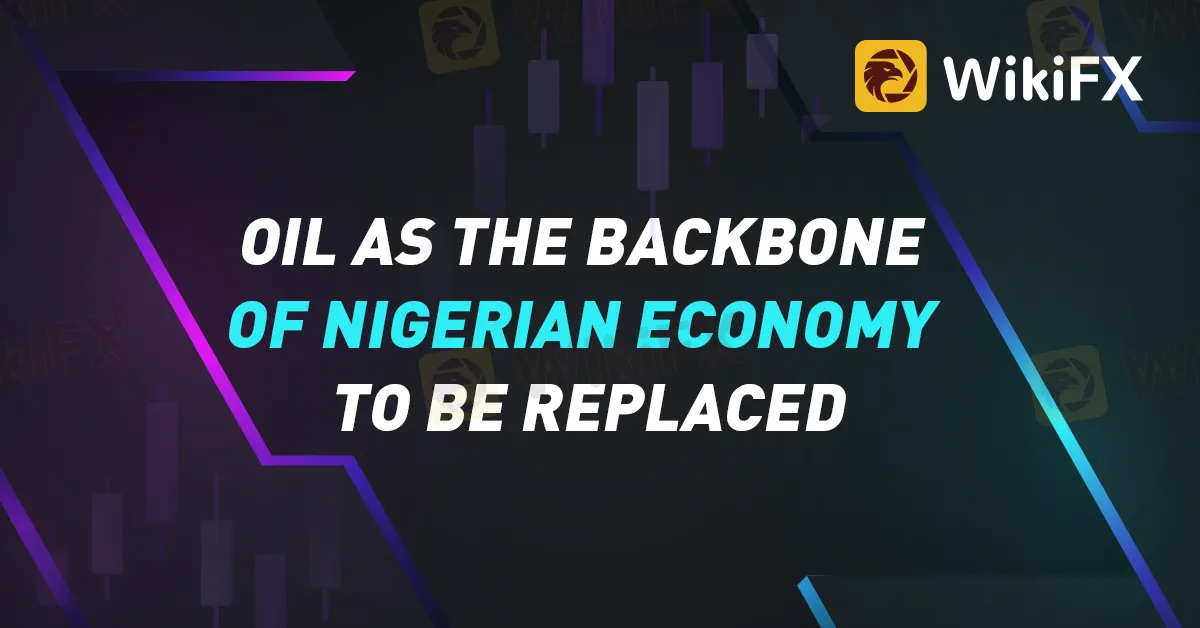简体中文
繁體中文
English
Pусский
日本語
ภาษาไทย
Tiếng Việt
Bahasa Indonesia
Español
हिन्दी
Filippiiniläinen
Français
Deutsch
Português
Türkçe
한국어
العربية
OIL AS THE BACKBONE OF NIGERIAN ECONOMY TO BE REPLACED
Abstract:To avoid related economic headwinds, there is an urgent need to diversify away from an economy that depends on oil. Despite several policies, measures, and efforts to change the situation by diversifying into other kinds of income, the Nigerian economy has been heavily dependent on oil as its primary source of income for decades.

To avoid related economic headwinds, there is an urgent need to diversify away from an economy that depends on oil.
Despite several policies, measures, and efforts to change the situation by diversifying into other kinds of income, the Nigerian economy has been heavily dependent on oil as its primary source of income for decades.
Despite providing more than 80% of the nation's income and foreign exchange revenues, the oil sector's contribution to the country's Gross Domestic Product is negligible. The National Bureau of Statistics (NBS) recently revealed GDP data for the second quarter of 2022, showing that the oil sector contributed 6.33 percent to real GDP, down from the 7.42 and 6.63 percent it had provided in the same period of 2021 and the quarter before.
Nigeria's economy is still considered to be mono-product even if efforts are being made to lessen its reliance on oil. A mono-product economy is one that depends primarily on one good or resource for its expansion and growth.
Due to its dependence on oil and gas, Nigeria had a mono-product economy in the first quarter of 2022, with oil and gas accounting for 90% of export income and 85% of government revenue.
This is true despite Nigeria has a massive amount of arable land and a heavily agrarian economy. Although though Nigeria has over 80% of its land arable, less than 40% of the land is cultivated, despite a significant section of the country's people relying on agriculture for their livelihood.
The Central Bank of Nigeria's (CBN) Director of Trade and Exchange Department, Dr. Ozemena Nnaji, outlined the difficulties a mono-product economy has while speaking at a seminar for financial journalists and business editors. She claims that a mono-product economy is unstable because changes in the global price of the same good will have an impact on the economy's budget. She continued, mentioning that one drawback is the high rate of unemployment: An import-oriented economy lowers the foreign exchange basis of a country's currency. The economy is dependant, hence it is unable to function independently. It weakens domestic manufacturing of goods that are imported into the nation. A nation may also import inflation and other economic impacts in addition to finished commodities.
Dr. Biodun Adedipe of B. Adedipe Associates Limited also criticized the nation's reliance on oil. According to him, concentration risk affects nearly every significant area of the Nigerian economy.
The most basic, according to him, is the role that crude oil plays in every equation in Nigeria, including those involving foreign earnings, government revenues, sectoral contributions to GDP, institutions, money for education, urbanization, etc.
IMPACT ON NIGERIA
Despite fifty years of lip service paid to diversification, backward integration, and import substitution, Nigeria is still primarily an import-dependent economy, according to Professor Ken Ife, Development Consultant & Lead Consultant, Industry & Private Sector Development, ECOWAS Commission.
Even though the petroleum sector only makes up slightly more than 5% of the GDP, the import dependence is exacerbated by a monocultural hydrocarbon-dominated forex import earner that accounts for 80% of crude oil and 10% of natural gas, a third of banking sector credit, and 50% of government revenues.
The Nigerian economy is on the transmission belt of international supply chains, which has considerable impact. Any external global headwind has an impact on the economy of Nigeria. The US sub-prime mortgage crisis of 2008/2009 forced CBN to establish AMCON, which devoured N6 trillion to clean up the balance sheets of Nigerian banks and financial organizations.
Need for Diversification
Adedipe emphasized the requirement for the nation's oil-related income stream to be diversified, stating that “diversification means that we don't rely on only one or few related sources of revenue, income, or inflows.”
Adedipe said that because fossil fuels are becoming less popular, approximately 80% of Nigeria's commerce export is at risk! In an effort to combat climate change, clean and green energy is being sought for with fervor. Numerous green bond issuances and other sources of money are pouring into these ventures.
The combination of policies and incentives driving the evolution of electronic vehicles—a ban on ICE or electrification—have been listed as additional justifications for the need for the government to abandon oil. These include Norway 2025; 9 countries plus the UK 2030; the US, China, and Japan 2035; and others 2040, 2045, and 2050. Additionally, more and more African nations with investor-friendly energy policies are discovering crude oil.
Courageous efforts must be done if Nigeria really wishes to escape its dependence on crude oil and the problems this has brought since the petrodollar started flowing in 1974. It is important to realize that this is not a financial or financing issue. It won't be resolved by eliminating or decreasing the exchange rate premium.
Making concessions to the IMF won't help either. Even though Ghana has done that 17 times, the Ghanaian Cedi is not a very valuable currency at the moment. We are producing the proper things, but we are not generating enough, and this is the core problem. Our problems have internal solutions, we tend to turn outside of Nigeria for redemption. We must consciously coordinate our policies across the financial, commercial, and industrial pillars, he stated.
He listed non-oil exports, foreign direct and portfolio investments from the diaspora, which increased from $6 million per week in December 2020 to $100 million per week by January 2022, while identifying the sources of foreign exchange earnings.
In response to the question of how the CBN's policies had helped the economy, he stated, In 2020, just like in 2016, Nigeria experienced stagflation. In contrast to 2017, when it took 5 quarters, it only took 1 quarter to get out of the recession in 2020. This resulted from both the fiscal intervention and the quantitative Monetary Policy Intervention (N3.5tr) (Economic Sustainability Plan – N2.3tr of which CBN was to contribute N1.5tr). More people could have died from hunger and malnutrition than from COVID-19 and widespread insecurity combined because of disruption, staff layoffs, and high unemployment rates.

Disclaimer:
The views in this article only represent the author's personal views, and do not constitute investment advice on this platform. This platform does not guarantee the accuracy, completeness and timeliness of the information in the article, and will not be liable for any loss caused by the use of or reliance on the information in the article.
Read more

Malaysian-Thai Fraud Syndicate Dismantled, Millions in Losses Reported
The Royal Malaysia Police (PDRM) has received 26 reports concerning the Nicshare and CommonApps investment schemes, both linked to a major fraudulent syndicate led by a Malaysian citizen. The syndicate’s activities came to light following the arrest of its leader by Thai authorities on 16 December.

WikiFX Review: Is FxPro Reliable?
Founded in 2006, FxPro is a reputable UK-based broker, trading on various market instruments. In this article, we will help you find the answer to one question: Is FxPro reliable?

Geopolitical Events: What They Are & Their Impact?
You've heard many times that geopolitical events have a significant impact on the Forex market. But do you know what geopolitical events are and how they affect the FX market? Let us learn about it today.

Why Do You Feel Scared During Trade Execution?
Trade execution is a pivotal moment for traders. It is when analysis turns into action, and potential profits or losses become reality. However, for many traders, this moment is accompanied by fear. Why does this happen, and how can you address it?
WikiFX Broker
Latest News
ASIC Sues Binance Australia Derivatives for Misclassifying Retail Clients
Geopolitical Events: What They Are & Their Impact?
Top 10 Trading Indicators Every Forex Trader Should Know
WikiFX Review: Is FxPro Reliable?
Malaysian-Thai Fraud Syndicate Dismantled, Millions in Losses Reported
Trading frauds topped the list of scams in India- Report Reveals
Why Do You Feel Scared During Trade Execution?
Revolut Leads UK Neobanks in the Digital Banking Revolution
Fusion Markets: Safe Choice or Scam to Avoid?
SEC Approves Hashdex and Franklin Crypto ETFs on Nasdaq
Currency Calculator


